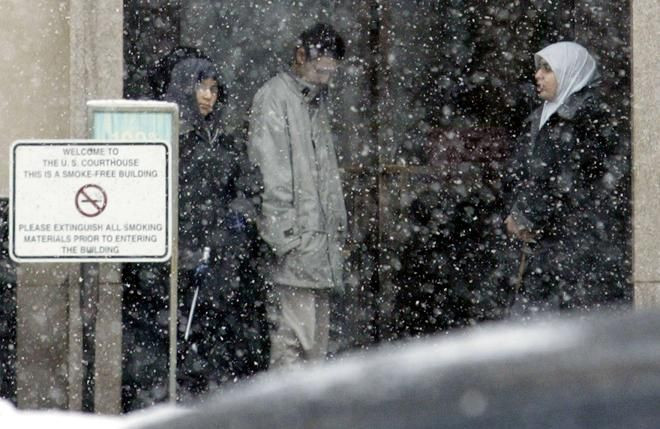Judges Face Unique Challenges in Terror, National Security Cases

The US federal court system’s research and education arm released a document in November highlighting challenges facing judges overseeing cases related to terrorism and national security.
The document released in November entitled “National Security Case Studies: Special Case-Management Challenges” was meant to serve as a guide for other judges to learn from the experiences of others confronted with proceedings featuring classified and sensitive information.
"The purpose is to offer a resource for judges facing these challenges to learn from their colleagues' experience," said Robert Timothy Reagan who authored the study in a statement.
The Administrative Office of The United States Courts, an administrative arm of the U.S. federal judiciary, highlighted the document on its website, USCourts.gov, on Tuesday.
Case Challenges
The review features how judges dealt with challenges in national security cases like classified evidence or arguments, special security measures for witnesses or the jury, reduced attorney’s contacts with clients, and other challenges that may present themselves.
The review outlines 27 cases related to national security, and the information for each case was based on a review of case files and interviews with about 60 district and appellate judges.
The document notes that classified information security officers were a vital element in courts’ handling classified information that are trained by the Department of Justice Litigation Security Group.
Foreign Witnesses
One of the challenges highlighted in the review was how Judge Gerald Lee dealt with foreign witnesses and witness security when he presided over the case of Ahmed Omar Abu Ali, who was charged with plotting to kill President George Bush and aiding Al-Qaeda.
Abu Ali was arrested in Saudi Arabia by officers of that nation’s counterterrorism organization and argued that his confession was invalid because he was tortured while he was held there.
"To decide whether Abu Ali's confession should be suppressed, Judge Lee arranged for seven days of video depositions of Mabahith officers in Saudi Arabia," according to the FJC publication. "Because the identities of Mabahith officers are secret, the Saudi government would not permit them to come to the United States to testify. There also was the risk that dangerous groups in Saudi Arabia would object to the officers' cooperation with an American prosecution."
Judge Lee had to send two prosecutors, two defense attorneys, a camera operator and an interpreter to Saudi Arabia to set up a live video feed which connected Saudi Arabia and the United States
“The video image was constructed as a split screen with the defendant on one side and the witness on the other, so that the defendant could see the witness and the witness could see the defendant," the case study said.
After hearing arguments from both sides of the case, and live testimony from a variety of witnesses, Lee ruled that Abu Ali’s confession was acceptable to be counted as evidence, however the judge let Abu Ali’s lawyers argue that the confession had been coerced, and the split screen video deposition showed to the jury.
The judge allowed the Mabahith officers to use pseudonyms when they testified, and the judge, attorneys, defendant, and jury were able to see the officers’ images, and the public only had access to audio portions of the testimonies.
Classified Evidence
Another case that dealt with classified evidence used to prosecute Canadian Mohamed Abdullah Warsame accused of aiding Al-Qaeda was documented in the review, and Judge John Tunheim’s staff and the defendant’s attorneys all had to obtain security clearances.
Warsame’s defense attorneys also had to review classified material in a secure room at the courthouse that had an appropriate safe. Government officials also declassified some materials used as evidence and proposed substitutions or modifications to evidence that were still classified but were needed.
Mohamed Abdullah Warsame, a Canadian citizen accused of providing material support to Al-Qaeda.
Published by Medicaldaily.com



























